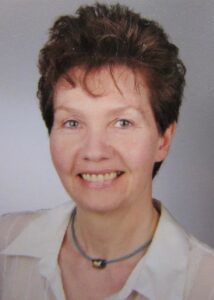Leadership:

Office Hours
To schedule an individual appointment, please feel free to reach out via E-Mail ([email protected]).
Curriculum Vitae
- since 09/2022: Professor for Psychological Methods and Statistics at Helmut Schmidt University Hamburg
Publications
newspaper article
- Zitzmann, S., Wagner, W., Hecht, M., Helm, C., Fischer, C., Bardach, L., & Göllner, R. (2021). How many classes and students should ideally be sampled when assessing the role of classroom climate via student ratings on a limited budget? An optimal design perspective. Educational Psychology Review. Advance online publication. https://doi.org/10.1007/s10648-021-09635-4
- Zitzmann, S., Weirich, S., & Hecht, M. (2021). Using the effective sample size as the stopping criterion in Markov chain Monte Carlo with the Bayes module in Mplus. Psych, 3, 336-347. https://doi.org/10.3390/psych3030025
- Weirich, S., Hecht, M. (shared first authorship), Becker, B., & Zitzmann, S. (2021). Comparing group means with the total mean in random samples, surveys, and large-scale assessments: A tutorial and software illustration. Behavior Research Methods. Advance online publication. https://doi.org/10.3758/s13428-021-01553-1
- Godara, M., Silveira, S., Matthäus, H., Heim, C., Voelkle, M., Hecht, M., Binder, E. B., & Singer, T. (2021). Investigating differential effects of socio-emotional and mindfulness-based online interventions on mental health, resilience and social capacities during the COVID-19 pandemic: The study protocol. PLOS ONE, 16, e0256323. https://doi.org/10.1371/journal.pone.0256323
- Hecht, M., Weirich, S., & Zitzmann, S. (2021). Comparing the MCMC efficiency of JAGS and Stan for the multi-level intercept-only model in the covariance- and mean-based and classic parametrization. Psych, 3(4), 751–779. https://doi.org/10.3390/psych3040048
- Hecht, M., & Zitzmann, S. (2021). Exploring the unfolding of dynamic effects with continuous-time models: Recommendations concerning statistical power to detect peak cross-lagged effects. Structural Equation Modeling, 28(6), 894–902. https://doi.org/10.1080/10705511.2021.1914627
- Hecht, M., & Zitzmann, S. (2021). Sample size recommendations for continuous-time models: Compensating shorter time-series with higher numbers of persons and vice versa. Structural Equation Modeling: A Multidisciplinary Journal, 28, 229–236. https://doi.org/10.1080/10705511.2020.1779069
- Crewther, B. T., Hecht, M., & Cook, C. J. (2021). Diurnal within-person coupling between testosterone and cortisol in healthy men: evidence of positive and bidirectional time-lagged associations using a continuous-time model. Adaptive Human Behavior and Physiology, 7, 89-104. http://dx.doi.org/10.1007/s40750-021-00162-8
- Zitzmann, S., Helm, C., & Hecht, M. (2021). Prior specification for more stable Bayesian estimation of multilevel latent variable models in small samples: A comparative investigation of two different approaches. Frontiers in Psychology, 11, 1–11. http://dx.doi.org/10.3389/fpsyg.2020.611267
- Zitzmann, S., Lüdtke, O., Robitzsch, A., & Hecht, M. (2021). On the performance of Bayesian approaches in small samples: A Comment on Smid, McNeish, Miocevic, and van de Schoot (2020). Structural Equation Modeling: A Multidisciplinary Journal, 28, 40–50. http://doi.org/10.1080/10705511.2020.1752216
- Hecht, M., Voelkle, M. C. (2021). Continuous-time modeling in prevention research: An illustration. International Journal of Behavioral Development, 45. 19–27. http://dx.doi.org/10.1177/0165025419885026
- Crewther, B. T., Hecht, M., Potts, N., Kilduff, L. P., Drawer, S., Marshall, E., & Cook, C. J. (2020). A longitudinal investigation of bidirectional and time-dependent interrelationships between testosterone and training motivation in an elite rugby environment. Hormones and Behavior, 126, 1–8. http://dx.doi.org/10.1016/j.yhbeh.2020.104866
- Schauber, S. K., & Hecht, M. (2020). How sure can we be that a student really failed? On the measurement precision of individual pass-fail decisions from the perspective of Item Response Theory. Medical Teacher, 42, 1374–1384. http://dx.doi.org/10.1080/0142159X.2020.1811844
- Hecht, M., & Zitzmann, S. (2020). A computationally more efficient Bayesian approach for estimating continuous-time models. Structural Equation Modeling: A Multidisciplinary Journal, 27, 829–840. http://dx.doi.org/10.1080/10705511.2020.1719107
- Hecht, M., Gische, C., Vogel, D., & Zitzmann, S. (2020). Integrating out nuisance parameters for computationally more efficient Bayesian estimation – An illustration and tutorial. Structural Equation Modeling: A Multidisciplinary Journal, 27, 483– 493. http://dx.doi.org/10.1080/10705511.2019.1647432
- Hardt, K., Hecht, M., & Voelkle, M. C. (2020). Robustness of individual score methods against model misspecification in autoregressive panel models. Structural Equation Modeling: A Multidisciplinary Journal, 27, 240–254. http://dx.doi.org/10.1080/10705511.2019.1642755
- Schüttpelz-Braun, K., Hecht, M., Hardt, K., Karay, Y., Zupanic, M., & Kämmer, J. (2020). Institutional strategies related to test-taking behavior in low stakes assessment. Advances in Health Sciences Education, 25, 321–335. http://dx.doi.org/10.1007/s10459-019-09928-y
- Hecht, M., Hardt, K., Driver, C. C., & Voelkle, M. C. (2019). Bayesian continuous-time Rasch models. Psychological Methods, 24, 516–537. doi:10.1037/met0000205
- Zitzmann, S., & Hecht, M. (2019). Going beyond convergence in Bayesian estimation: Why precision matters too and how to assess it. Structural Equation Modeling: A Multidisciplinary Journal, 26, 646–661. http://dx.doi.org/10.1080/10705511.2018.1545232
- Hardt, K., Hecht, M., Oud, J. H. L., & Voelkle, M. C. (2019). Where have the persons gone? – An illustration of individual score methods in autoregressive panel models. Structural Equation Modeling: A Multidisciplinary Journal, 26, 310–323. http://dx.doi.org/10.1080/10705511.2018.1517355
- Schauber, S. K., & Hecht, M., & Nouns, Z. M. (2018). Why assessment in medical education needs a solid foundation in modern test theory. Advances in Health Sciences Education, 23, 217–232. http://dx.doi.org/10.1007/s10459-017-9771-4
- Hecht, M., Siegle, T., & Weirich, S. (2017). A model for the estimation of testlet response time to optimize test assembly in paper-and-pencil large-scale assessments. Journal for Educational Research Online, 9, 32–51.
- Heitmann, P., Hecht, M., Scherer, R., & Schwanewedel, J. (2017). “Learning science is about facts and language learning is about being discursive”: An empirical investigation of students’ disciplinary beliefs in the context of argumentation. Frontiers in Psychology, 8, 1–16. http://dx.doi.org/10.3389/fpsyg.2017.00946
- Wellnitz, N., Hecht, M., Heitmann, P., Kauertz, A., Mayer, J., Sumfleth, E., & Walpuski, M. (2017). Modellierung des Kompetenzteilbereichs naturwissenschaftliche Untersuchungen. Zeitschrift für Erziehungswissenschaft, 556–584. http://dx.doi.org/10.1007/s11618- 016-0721-3
- Weirich, S., Hecht, M., Penk, C., Roppelt, A., & Böhme, K. (2017). Item position effects are moderated by changes in test-taking effort. Applied Psychological Measurement, 115–129. http://dx.doi.org/10.1177/0146621616676791
- Gittel, B., Deutschländer, R., & Hecht, M. (2016). Conveying moods and knowledge-what-it-is-like through lyric poetry: An empirical study of authors’ intentions and readers’ responses. Scientific Study of Literature, 6, 131–163. http://dx.doi.org/10.1075/ssol.6.1.07git
- Hecht, M., Weirich, S., Siegle, T., & Frey, A. (2015). Effects of design properties on parameter estimation in large-scale assessments. Educational and Psychological Measurement, 75, 1021-1044. http://dx.doi.org/10.1177/0013164415573311
- Hecht, M., Weirich, S., Siegle, T., & Frey, A. (2015). Modeling booklet effects for nonequivalent group designs in large-scale assessment. Educational and Psychological Measurement, 75, 568-584. http://dx.doi.org/10.1177/0013164414554219
- Schauber, S. K., Hecht, M., Nouns, Z. M., Kuhlmey, A., & Dettmer, S. (2015). The role of environmental and individual characteristics in the development of student achievement: A comparison between a traditional and a problem-based-learning curriculum. Advances in Health Sciences Education, 20, 1033-1052. http://dx.doi.org/10.1007/s10459-015-9584-2
- 2014 Weirich, S., Hecht, M., & Böhme, K. (2014). Modeling item position effects using generalized linear mixed models. Applied Psychological Measurement, 38, 535-548. http://dx.doi.org/10.1177/0146621614534955
- Weirich, S., Haag, N., Hecht, M., Böhme, K., Siegle, T., & Lüdtke, O. (2014). Nested multiple imputation in large-scale assessments. Large-scale Assessments in Education, 2, 1-18. http://dx.doi.org/10.1186/s40536-014-0009-0
- Heitmann, P., Hecht, M., Schwanewedel, J., & Schipolowski, S. (2014). Students’ argumentative writing skills in science and first-language education: Commonalities and differences. International Journal of Science Education, 36, 3148-3170. http://dx.doi.org/10.1080/09500693.2014.962644
- Schauber, S. K., Hecht, M., Nouns, Z. M., & Dettmer, S. (2013). On the role of biomedical knowledge in the acquisition of clinical knowledge. Medical Education, 47, 1223–1235. http://dx.doi.org/10.1111/medu.12229
more publications
- Schauber, S. K., & Hecht, M. (2020). Reply to Jiang et al. Medical Teacher, 43, 608-609. http://dx.doi.org/10.1080/0142159X.2020.1834932
- Voelkle, M. C., & Hecht, M. (2017). Longitudinal research designs. In V. Zeigler-Hill & T. K. Shackelford (Eds.), Encyclopedia of Personality and Individual Difference (pp. 1–6). http://dx.doi.org/10.1007/978-3-319-28099-8_1323-1
- Voelkle, M. C., & Hecht, M. (2017). Cross-sectional research designs. In V. Zeigler- Hill & T. K. Shackelford (Eds.), Encyclopedia of Personality and Individual Differences (pp. 1–4). http://dx.doi.org/10.1007/978-3-319-28099-8_1295-1
- Lenski, A. E., Hecht, M., Penk, C., Milles, F., Mezger, M., Heitmann, P., Stanat, P., & Pant, H. A. (2016). IQB-Ländervergleich 2012. Skalenhandbuch zur Dokumentation der Erhebungsinstrumente. Berlin: Humboldt-Universität zu Berlin, Institut zur Qualitätsentwicklung im Bildungswesen. http://dx.doi.org/10.20386/HUB-42547
- Hecht, M. (2015). Optimierung von Messinstrumenten im Large-scale Assessment (Doctoral Dissertation). Humboldt-Universität zu Berlin. http://dx.doi.org/10.18452/17270
- Hecht, M., Roppelt, A. & Siegle, T. (2013). Testdesign und Auswertung des Ländervergleichs. In H. A. Pant, P. Stanat, U. Schroeders, A. Roppelt, T. Siegle, & C. Pöhlmann (Hrsg.), IQB-Ländervergleich 2012. Mathematische und naturwissenschaftliche Kompetenzen am Ende der Sekundarstufe I (S. 391-402). Münster: Waxmann.
- Schroeders, U., Hecht, M., Heitmann, P., Jansen, M., Kampa, N., Klebba, N., Lenski, A. E., & Siegle, T. (2013). Der Ländervergleich in den naturwissenschaftlichen Fächern. In H. A. Pant, P. Stanat, U. Schroeders, A. Roppelt, T. Siegle, & C. Pöhlmann (Hrsg.), IQB-Ländervergleich 2012. Mathematische und naturwissenschaftliche Kompetenzen am Ende der Sekundarstufe I (S. 141-158). Münster: Waxmann.
- Edele, A., Schotte, K., Hecht, M., & Stanat, P. (2012). Listening comprehension tests of immigrant students’ first languages (L1) Russian and Turkish in grade 9: Scaling procedure and results (NEPS Working Paper No. 13). Bamberg: Otto-Friedrich-Universität, Nationales Bildungspanel.
- Pohlmeyer, A. E., Hecht, M., & Blessing, L. (2009). User Experience Lifecycle Model ContinUE [Continuous User Experience]. In A. Lichtenstein, C. Stößel & C. Clemens (Hrsg.), Der Mensch im Mittelpunkt technischer Systeme. Fortschritt- Berichte VDI Reihe 22 Nr. 29 (pp. 314-317). Düsseldorf, Germany: VDI-Verlag
software/datasets
- Weirich, S., Hecht, M., Sachse, K., Becker, B., & Mahler, N. (2021). eatTools: Miscellaneous Functions for the Analysis of Educational Assessments (Version 0.5.0) [Computer software]. https://cran.r-project.org/package=eatTools
- Weirich, S., Hecht, M., Becker, B. (2021). eatRep: Educational assess- ment tools for replication methods (Version 0.13.5) [Computer software]. https://cran.r-project.org/package=eatRep
- Pant, H. A., Stanat, P., Hecht, M., Heitmann, P., Jansen, M., Lenski, A. E., Penk, C., Pöhlmann, C., Roppelt, A., Schroeders, U., & Siegle, T. (2017). IQB-Ländervergleich Mathematik und Naturwissenschaften 2012 (IQB-LV 2012) (Version 4) [Datensatz]. Berlin: IQB – Institut zur Qualitätsentwicklung im Bildungswesen. http://dx.doi.org/10.5159/IQB_LV_2012_v4
Secretary’s Office
Birgit Schüller

Gebäude H4
Holstenhofweg 85
22043 Hamburg
Department of Methodology and Statistics for Psychology
Postfach 70 08 22
22008 Hamburg
Office Hours
My office hours are Tuesday, Wednesday and Friday from 6:30 a.m. to 0:30 p.m. at HSU.
You can reach me in the home office on Monday and Thursday.
Otherwise send me an email at [email protected] or by phone at 040–6541-2400.
Doctoral Research Fellows
Andre Nedderhoff, M.Sc.

To schedule an individual appointment, please feel free to reach out via E-Mail.
Brief CV
[2016 – 2019] B.Sc. Psychology, Universiteit Twente
[2019 – 2022] M.Sc. Statistical Science: Data Science, Universiteit Leiden (incomplete)
[2020 – 2021] M.Sc. Clinical Psychology, Universiteit Leiden
[2020 – 2021] M.Sc. Behavioural Data Science, Universiteit van Amsterdam
[2021] Forschungspraktikum, Clinical Psychology Unit, Universität Hamburg
[2022] Wissenschaftlicher Mitarbeiter, Helmut-Schmidt-Universität, Hamburg
Publications
Janssen, L., Verkuil, B., Nedderhoff, A., van Houtum, L. A. E. M., Wever, M., & Elzinga, B. M. (2022, March 9). Tracking real-time proximity to assess parent-adolescent interactions in daily life. Retrieved from osf.io/k5qxb
Pratikshya Niraula, M. Sc.

and Statistics for Psychology
Office Hours
To schedule an individual appointment, please feel free to reach out via E-Mail.
Brief CV
[since 09.2025] Research assistant , Helmut-Schmidt-Universität, Hamburg
Alexander Starlinger, Research Assistent

Office Hours
To schedule an individual appointment, please feel free to reach out via E-Mail.
Brief CV
[since 06.2025] Research assistant , Helmut-Schmidt-Universität, Hamburg
=========================================
Assoziierte/Gast-Wissenschaftler*innen
M.Sc. Lukas Beinhauer
Email: [email protected]
https://www.uni-erfurt.de/erziehungswissenschaftliche-fakultaet/fakultaet/profil/fachgebiete-und-professuren/psychologie/sozial-organisations-und-wirtschaftspsychologie/team/lukas-beinhauer-m-sc
M.Sc. Eric Janus
Letzte Änderung: 3. February 2026